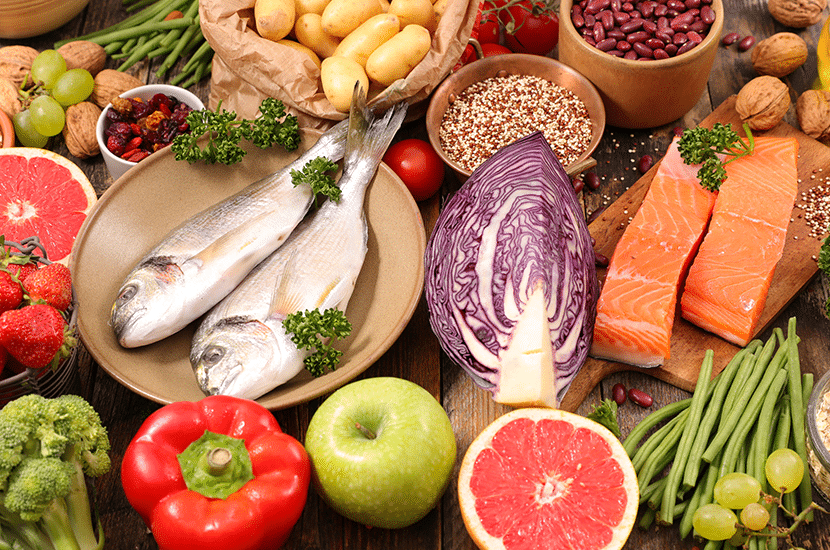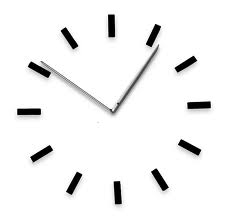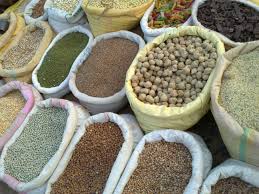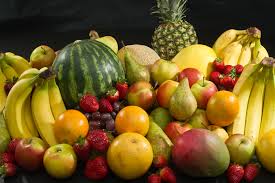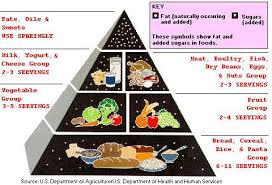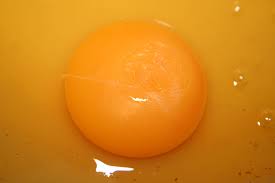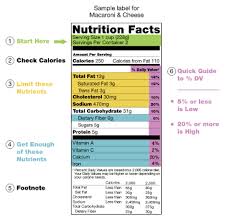You’ve been struggling with the weight problem and tried several things but nothing seems to work. Well, the first step in the weight loss journey is to understand facts about the food we eat and dispel the myths that drive us to adopt bad habits related food. Let’s take a look at some of the pervasive misinformation that exists in the media and internet as it relates to food.
Table of Contents
10. Not Eating Breakfast
This is one of the best known secrets to most. If you wake up late and don’t allot sufficient time to eat breakfast it might one of the biggest blunders you are making. When you wake up after a good night’s rest, your body is longing for nutrients. If you don’t replenish early after waking up, your muscle starts to break down for energy. A good way to start the day is to eat healthy breakfast. If you would like to truly lose weight consider this tip from Tim Ferris, the author of “4 Hour Body”, in which he recommends eating 30 grams of protein within 30 minutes of waking up. This simple trick alone has melted away pounds for so many people. Eating 2 eggs with salsa and a bowl of Greek yogurt will provide the 30 grams of protein required for a healthy breakfast. There are several recipes on the internet, if you would like to adopt this method.
9. Not Eliminating / Minimizing the Consumption of White Poisons
Brian Tracey, a popular author and self-help guru professes to cut out the white poisons from every day food or minimize it as much as you can. The three white poisons that he is referring to are:
Sugar:
So next time you are debating how many spoons of sugar to add to your morning tea or coffee, how about skipping it altogether.
Salt:
Refuse to add any extra salt in food. Beware of the salt content in canned foods, wash off the salt before you use the canned foods, if you can. Salt retains water in the body and causes you to bloat and not to mention it increases blood pressure.
White Flour:
Avoid all foods made with white flour (carbohydrates) such as breads, pastries etc . Instead try to consume items made from whole grains (non-pulverized) only if you are within 1.5 hours of performing resistance training.
8. Eating Too Close To Bed Time
Nutrition pioneer Adele Davis gave her well-known advice, years ago, to “eat breakfast like a king, lunch like a prince and dinner like a pauper.” There is a lot of confusion in the medical circles as to the weather eating at a certain time really matters, as long as calories consumed vs. calories burned is the primary driver for gaining or losing weight. Even U.S. Department of Agriculture’s Weight Control Information Network web site states that, “it does not matter what time of day you eat. It is what and how much you eat and how much physical activity you do during the whole day that determines whether you gain, lose, or maintain your weight.”
While logically it may appear to make sense, other experiments carried out on lab mice have indicated that eating close to sleep time caused weight gain. While these results haven’t been validated on human subjects, it doesn’t hurt to be cautious and allow 2-3 hours of activity before bed time and eating for preventing any weight gain.
7. Not Cutting Out Sugar Laden Artificial Fruit Juices
We have been conditioned by the orange fruit industry that orange juices are healthy for you as it contains the healthy vitamin C and prevents cold. They never tell us the quantity of sugar contained in these so called “healthy” drinks. Higher fruit juice intake means you are drinking higher amount of liquid carbs, it is worse than taking solid carbs from a weight loss perspective. Secondly, fruit juice (even the pure juice) has high quantities of fructose (sugar). So essentially fruit juice is high carb high dose sugar laden liquid, which is not too healthy if your goal is to lose weight. If you rather want the true benefits of fruit juice, eat the fruits than drink it from a bottle. Most fruit juices contain sugars equivalent to cola.
6. Getting Confused Between Whole Wheat vs. Whole Grain
Thanks to the marketing machine, they capitalized by twisting the wisdom in eating whole grain (non-pulverized) foods to make it sound like when you purchase a whole wheat bread somehow it is superior to just “wheat” bread. This is no more than a marketing ploy, don’t fall for it. If you truly want the health benefits, eat “whole grain” (non-pulverized bread)
5. Not Cutting Out Processed Food
The term processed food can be confusing and mean different things to different people. In this context we are talking about chemically processed foods, that are not in their natural state. Some of the drawbacks of eating processed foods include consumption of foods laden with high fructose and flour (high carbs). These fill us up with empty calories without any nutrients. All the nutrients get excluded during the processing phase, leaving the empty calories behind for us to consume. The foods are addictive, think donuts, muffins etc. They contain so many chemicals used in the processing its just mind boggling. Pick up a snack bar and take a look at the number of things in the ingredient list that you can’t pronounce. Best way to get around this problem, eat unprocessed real food.
4. Not Eating Enough Fruits and Vegetables Every Day
One of the biggest blunders we make is not consuming sufficient quantities of fruits and vegetables. Center for Disease Control (CDC) states that “growing body of research shows that fruits and vegetables are critical to promoting good health. To get the amount that’s recommended, most people need to increase the amount of fruits and vegetables they currently eat every day”. Each person is different, but to estimate the amount of recommended fruit and vegetables to be consumed, click here to go to CDC website to calculate the recommended quantity.
3. Not Taking Proportionate amounts of Carbs and Proteins
One of the common mistakes people make is not following the ratio of carbs vs. protein intake. According to U.S. Department of Agriculture’s recommended guideline a healthy diet should include a mixture of carbs, fat and proteins. While the ideal recommended amounts will be different for different people, U.S.D.A provides some general guidelines, they recommend that 10% to 35% of calories should come from proteins, where are rest of 45% to 65% calories should come from carbohydrates. So if you are consuming a 2000 calorie diet each day, ideally you should be eating 50 grams to 175 grams of protein and 225 grams to 325 grams of carbohydrates.
2. Not Eating Egg Yolks
This is another common misnomer. Eggs are an excellent source of lean protein and omega-3 fatty acids, which are heart healthy and have important nutrients. In addition eggs also contain cholesterol, which was thought to be harmful to blood cholesterol. However with recent advances in science it has been established that real threat to high cholesterol in humans is not the dietary cholesterol but rather cholesterol content derived from saturated and trans fats. So next time you make eggs, don’t throw away the yolk.
1. Not Reading Food Labels
If we don’t read the food labels and understand them before we purchase an item, there is no one else to blame but ourselves. Be a savvy label reader and understand the various terms. Utilize the FDA.gov site to understand the labels. Some tips on how to read labels from Dr. Mark Hyman, author of “Blood Sugar Solution”:
1. Some times what you see is not fully what you get, marketing people know how to gives you bits and pieces of truth to you without being fully transparent.
2. If the main food is at the end of the list of ingredients and salt and sugars are in the beginning of the list, think twice before you buy that item.
3. Pay attention to the Cholesterol content, Trans fats, and saturated fat content.
